Post
A catch
Save a catch to start your fishing logbook. You will be able to to share it with the community if yo want!
A fishing trip
Post an ad to go fishing with other fishermen
Save a catch to start your fishing logbook. You will be able to to share it with the community if yo want!
Post an ad to go fishing with other fishermen
Share a thought, a question with the community
My favorite cities
×Join our 2 fishermen in Plover in Pocahontas. The fishing forecast is currently 2.1. The most caught fishes here are the apache trout, the walleye, the striped bass and the brook trout. Come try the most famous fishing techniques like the big game fishing, how to catch smelt with square net?, barracuda trolling or deep-sea fishing.
Our fishing forecast of Plover indicates the best time to go fishing in this city.
The Apache trout
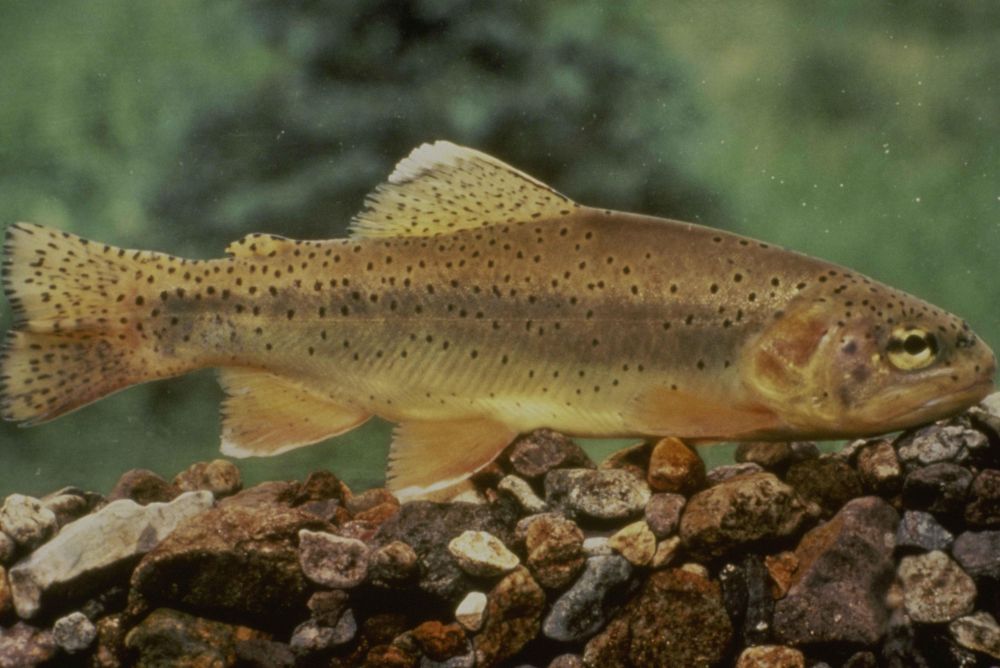
The Apache trout belongs to the Salmonidae family. The Apache trout is 15 to 61 cm long and weighs 0.2 to 2.7 kg. It rarely exceeds 25 cm but can reach up to 40 cm in its natural headwaters. It breeds from May to June. Fishing for Apache trout is prohibited all year round. Apache trout are yellowish gold in color with a golden belly and have medium sized dark spots, uniformly spaced, which can extend below the lateral line and over the dorsal fins and tail. The top of the head and back are dark olive in color, and it appears to have a black stripe/mask through each of its eyes, thanks to two small black dots on each side of the pupil. There may be a throat mark under the lower jaw, ranging from yellow to gold.
The Apache trout is a famous fish you can catch in Plover.The Walleye
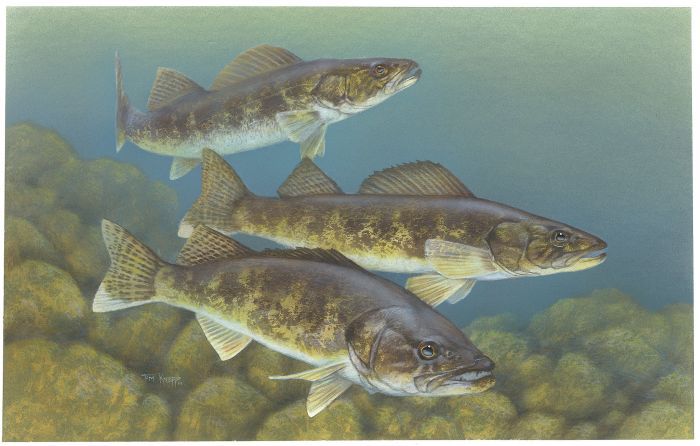
The Walleye belongs to the Percidae family. They can reach 107 cm in length and reach 11 kg. The average weight is about 5 kg. Walleye can live 10 to 20 years. They spawn in the spring or early summer. It can be fished from May to March. Walleye are freshwater fish of the Percidae family, a popular and commonly supplied game fish. The body is long and thin, mainly golden and olive colored, with a white belly. The back is crossed with five or more black stripes. They have two dorsal fins - one spiny and one with softened rays. The mouth of the walleye is wide, with sharp teeth, and its low-light vision helps it to find its prey at night.
The Walleye is a famous fish you can catch in Plover.The Striped Bass
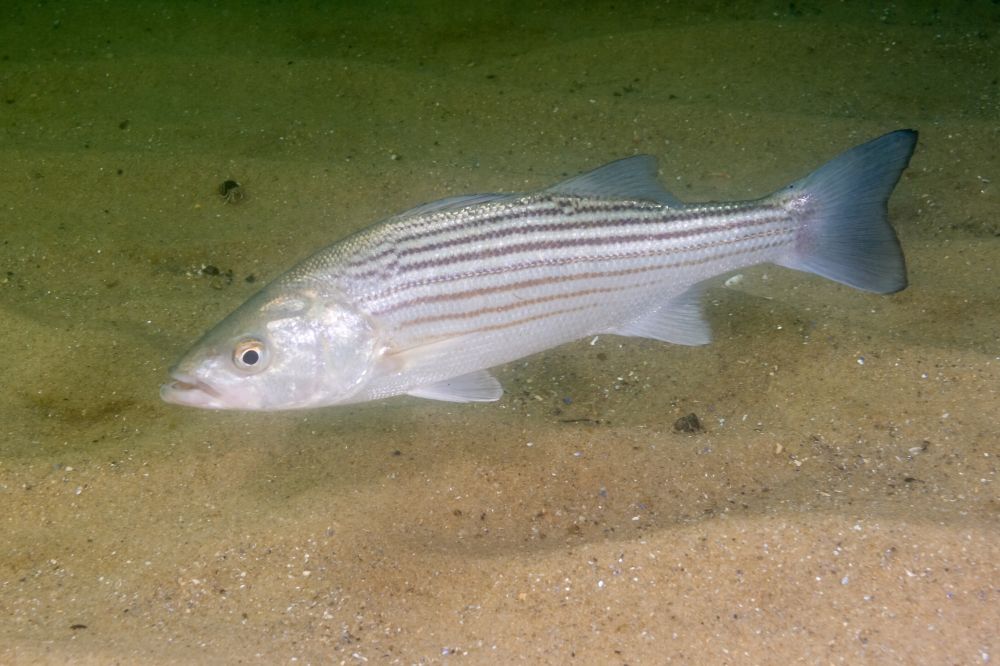
The Striped Bass belongs to the Moronidae family. It can weigh between 4 and 23 kg and size 46 to 140 cm. He can live up to 20 years. It spawns from April to mid-June. It can be fished from May to November. The striped bass has a laterally compressed body, a large terminal mouth, distinct dorsal fins and six to nine continuous lateral bands on both sides of its body. The second anal spine is shorter and thicker than the third anal spine. Striped bass tend to be pale green, olive, steel blue, black or brown on their back, with an iridescent white or silvery belly. Individuals over 25 years of age have been recorded and sexual maturity is reached between 2 and 4 years for men and between 5 and 8 years for women.
The Striped Bass is a famous fish you can catch in Plover.The Brook Trout
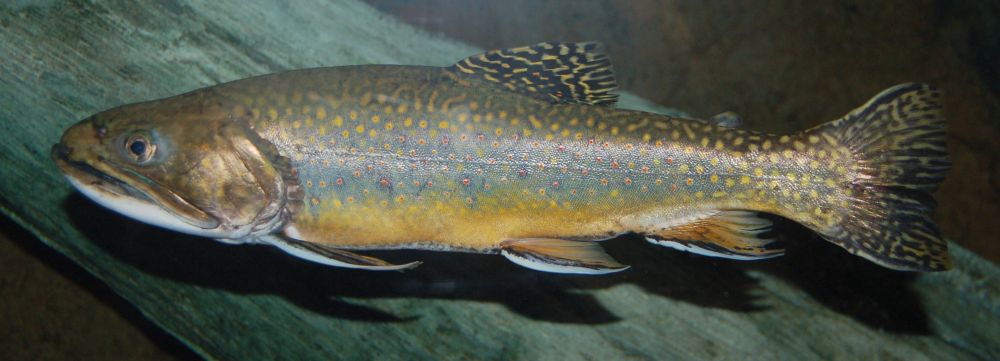
The Brook Trout belongs to the Salmonidae family. The average size of the brook trout is 50 cm and the weight only exceptionally exceeds 7 kg. It has a longevity of 5 years. It reproduces in autumn. It is fished from April to September. Its body is fusiform, laterally compressed, and slender. Its general shape is reminiscent of trout, although a little more massive. The body is arched at the dorsal fin. It has a small but stocky head with a widely split mouth, including teeth on the jaws, tongue and palate. On the body, the scales are small and thin. The Brook trout have two dorsal fins, one of which is characteristic of Salmonids. The color is distributed differently over the body: the back is rather dark brown, with lighter mottling and covered with a network of very close yellow spots. The sides have a beautiful light brown color, sometimes olive green. They also have yellow spots, less tightened. Round and red spots can also be seen on the sides. The color of the belly varies from white to pink, but can be pale yellow to dark red. It all depends on the environment in which it operates. Populations living near the bottom are paler than those living in open water, rather colorful. In males, the livery becomes bright orange during the breeding season. Finally, the pectoral, pelvic and anal fins are bordered by a white border, specific to the genus Salvelinus, highlighted here by a black band.
The Brook Trout is a famous fish you can catch in Plover.The Atlantic Sturgeon
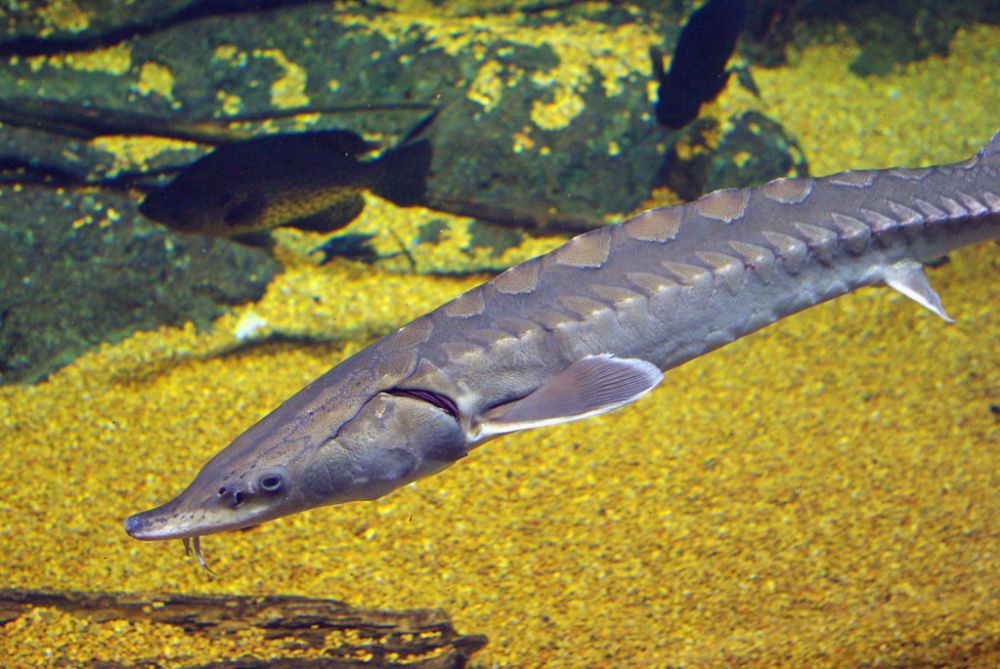
The Atlantic Sturgeon belongs to the Acipenseridae family. Its length can generally reach 3 m; its maximum length is 4.3 m. Its weight is between 150 and 200 kg; it can reach a maximum weight of 368 kg. It can live to 60 years and over. It only reproduces every 2 years. The maximum fertility rate is 3.75 million eggs. It is one of IUCN's protected species and fishing is highly regulated. It can be fished during the cool seasons. It has a snub nose, with four barbells in the front of his belly mouth. It carries five rows of bone plates on the back and sides of the body. The dorsal lobe of its caudal fin is longer than the ventral lobe. The skeleton of this bony fish is largely cartilaginous.
The Atlantic Sturgeon is a famous fish you can catch in Plover.Our fishing forecast of Plover indicates the best time to go fishing in this city.
Our fishing forecast of Plover indicates the best time to go fishing in this city.
Our fishing forecast of Plover indicates the best time to go fishing in this city.
